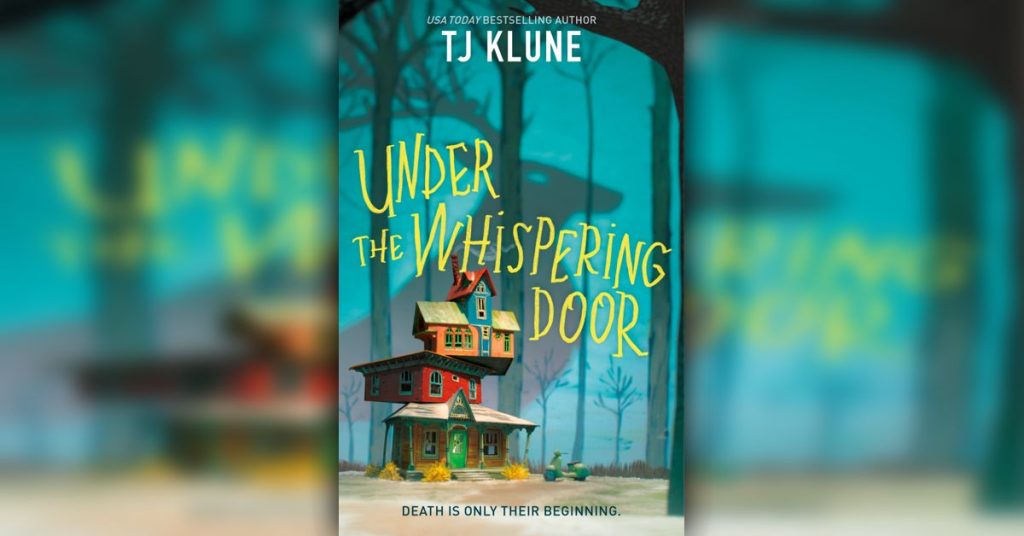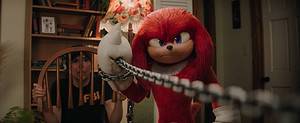Synopsis
When a reaper comes to collect Wallace from his own funeral, Wallace begins to suspect he might be dead. And when Hugo, the owner of a peculiar tea shop, promises to help him cross over, Wallace decides he’s definitely dead. But even in death he’s not ready to abandon the life he barely lived, so when Wallace is given one week to cross over, he sets about living a lifetime in seven days.
What happens after you die? Is there a Heaven? A Hell? A whole lot of nothing? It’s a question that we’ve been asking ourselves for as long as we’ve known what death was. And in TJ Klune’s Under the Whispering Door, Reapers and Ferrymen usher the recently deceased from the world of the living to whatever form their afterlife takes. For most, this transition happens without a problem. But for some, like Wallace Price, it’s quite a difficult affair. Under the Whispering Door is a gorgeously written, expertly plotted, and deeply emotional read. Perfectly balancing humor, melancholy, and deep sadness, Under the Whispering Door dives deep into what it means to be a good person. It’s a thrilling fantasy, a sweet romance, and an emotional exploration of grief. All in all, it’s a must-read.
A Fun Twist on Familiar Elements
Wallace Price was not a good man. And it took him dying to finally figure it out. After being led to a mysterious tea shop by Mei, a self-described Reaper, Wallace meets Hugo – a ferryman tasked with ushering the recently deceased to their afterlife. The problem is that Wallace isn’t ready to move on. And not only that, he can’t even accept that he’s dead. Lucky for him, though, he’s got plenty of time to come to terms with his death – and maybe, just maybe, the chance to make up for the life he didn’t live. Under the Whispering Door is less of a story about death and more of a story about what it means to live. It’s not a book about ghosts, it’s a book about a specific ghost and the relationships he forms in his afterlife.
If you’ve ever seen Dead Like Me or Pushing Daisies, you’ll have a pretty good hint as to what kind of a story this is. Hugo easily fits in amongst the Reapers in Dead Like Me or alongside Ned in Pushing Daisies. Characters that help the recently deceased learn how to move on. It’s a common trope in fantasy literature, but one that’s utilized very well here. Klune focuses less on the specifics of how the afterlife works, and instead, laser-focuses on Wallace’s specific emotional arc. How he changes from this closed-off, bitter person into someone who genuinely cares for himself, his friends, and even his loved ones. As a ghost, Wallace grows more than he ever did while he was alive. And it’s an absolute delight to witness.
Gorgeously Written
Perhaps the first thing you notice about Under the Whispering Door is how gorgeously written it is. Under the Whispering Door is a very whimsical novel. And it can be very difficult to capture that kind of whimsy in prose without coming across as overly descriptive – or so poetic it veers into “purple prose”. But Klune walks that tight rope perfectly. His prose is just descriptive enough that you can understand what’s going on without being so descriptive that it slows down the pacing. And while he definitely veers into some poetic prose at times, it always feels purposeful and insightful. These moments of more whimsical prose are rooted in what’s going on with the characters
With how much the book revolves around the concept of death and grief, it would’ve been easy for things to grow too depressing. But luckily, Klune strikes a great balance between the lighter moments and the more serious ones. There are occasional moments where the tone wildly swings from humor to sadness, but they mostly work quite well. The parts of the book that are meant to be funny are genuinely funny. I rarely audibly laugh at books, but there’s a sequence about halfway through the book involving a seance that made me cackle. And the same is true for the sadder moments. It never feels maudlin or overwrought with emotion. Everything is very character-driven and rooted in their real experiences. The entire cast of characters feels authentic and lived in. And so those moments of sadness feel earned. It’s exposition, sure, but it’s character-driven exposition rather than plot-driven exposition.
Expert Plotting
Under the Whispering Door has some of the best plotting I’ve seen in a while. While it’s not really the kind of book that’s trying to wow you with twists and turns or anything, it’s still clear just how much effort Klune’s put into making sure everything comes together. No detail is random. Everything he introduces has some kind of payoff, even if it’s something that initially feels unimportant and minor. If you’re paying attention, you can see the broad strokes of where the story is going – but in a good way. It means that Klune perfectly lays the groundwork for every single aspect of the story. Nothing feels like it came out of left field because Klune perfectly sets everything up – even if you didn’t realize that’s what was happening when it happened.
However, that’s not to say that the narrative is without fault. A lot of time passes between some chapters. And during this unseen time, Wallace often makes quite a bit of headway towards accepting his situation/being a better person/falling for Hugo, etc. It would have been nice to get to experience these moments as they happened, rather than having it summed up in a throwaway paragraph.
I’m also conflicted about the ending. On an emotional level, it works very well. But on a narrative level, it sort of feels like a copout. You see it coming from a mile away (though the exact specifics aren’t as easily predictable). But it feels slightly at odds with the novel’s themes. To say any more would veer into spoilers, but the success of the ending is largely gonna depend on what you wanted out of this story. The more invested you are in the characters and their relationships, the more you’re liable to like the ending.
Lack of Urgency
There’s also a general lack of urgency to most of Under the Whispering Door. For a book about a character needing to come to peace with being dead so he can move on, there is a general lack of urgency to things until very late in the novel. Now, to be fair, that lack of urgency feels like an intentional choice. It is a character-driven story. So, it’s all about how Wallace grows in his afterlife. How he changes and becomes better. And the leisurely pace supports this.
So because of that, it’s a little offputting when the literary equivalent of a ticking timer is draped over the story. Narratively, it does make sense. Wallace needs a kick in the rear in that moment to finally make a choice. But it still feels odd. I wish Klune had either introduced the time limit earlier on or had just fully embraced the leisurely pacing. But it’s a very minor issue because everything else about the book is just so dang delightful.
Final Thoughts
At the end of the day, Under the Whispering Door is an absolutely delightful read. It’s the literary equivalent of snuggling up with a comfy blanket. Sure, there’s a general lack of subtlety to all of the book’s themes. And sure, the plot has a few issues and the ending’s bound to be a bit divisive. But I dare you to walk away from this book without a smile on your face. Under the Whispering Door prioritizes character growth to a twisty-turny plot, and it’s absolutely the right call. The prose is gorgeous and easy to read, the whimsy leaps off the page, and the characters are so well-written and realized that you feel like you genuinely know them. If you’re a fan of light-hearted, yet emotional, whimsy – or if you like shows like Dead Like Me and Pushing Daisies – then Under the Whispering Door is a must-read.
Rating: 4.5/5
Under the Whispering Door is available now from Macmillan/Tor Books in Hardcover, ebook, and audiobook formats.
Disclaimer: A review copy of Under the Whispering door was provided by Macmillan/Tor Books and NetGalley. All opinions in this review are the honest reactions of the author.







